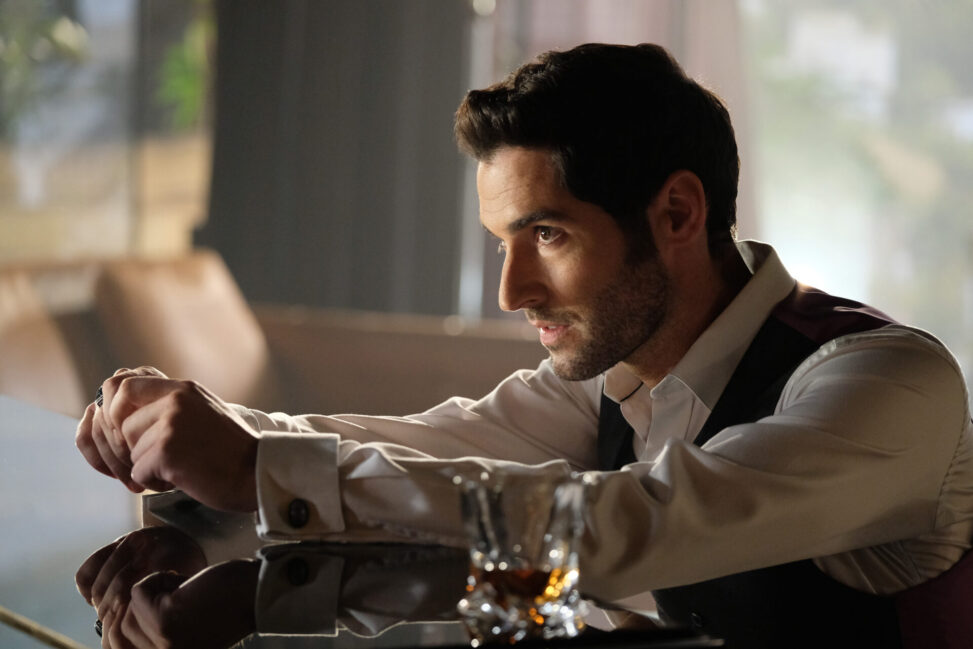This episode really begs the question, is Lucifer inherently evil? Can he get out of his “devilish” ways? Is there any plus to him being the devil? Of course he sees himself with a skewed perspective, although the people he associates himself with see that he is a good person who can be better, who can change, who is not evil to the core. As most episodes go, Lucifer and Chloe (The Detective, as he calls her) get a new case about a murder and a suspect who seems to be the obvious culprit – these kids were in a halfway home of sorts for juvenile delinquents. This gives way to Lucifer’s mood of the episode – nobody can change their ways. Not taking no for an answer, he goes to the halfway home to find the true desires of the delinquent kids – somehow, he gets them to start a pot farm, as he truly believes that they can’t be changed and are forever bad. Sort of like he sees himself. I would say this is a show of him being masculine – not taking no for an answer, and doing his best to prove that he is right above all else. Moving to the next part of the episode, Lucifer’s angel brother, Amenadiel, is going through some issues of his own about loneliness… so like a good brother would, Lucifer gives him a total makeover, allowing him access to his closet, showing him social media such as Tinder and Grindr (dating websites), and coaching him on how to get a woman to go home with him. This would be seen as overtly feminine, the willingness to give him a makeover of all things as well as the compassion and love that would move him to do so. However, it becomes masculine again, as it deters towards fixing Amenadiel’s sex life. Men seem to be so fascinated with sex and how many women they can bring home. Unfortunately, Lucifer’s tactics seem to make Amenadiel lonelier than ever. Moving to the next part of the episode, Chloe follows a lead while Lucifer concerns himself with another woman, which he soon regrets when he learns that Chloe got ambushed by the actual murdered, thankfully with no casualties. Feeling regretful and awful, Lucifer tracks down the murdered and wishes to hurt him fatally. His brother stops him, saying that he is not evil, and if Lucifer were to kill the man he would be straying from the sense of goodness he so desires. Lucifer is the punisher of evil, not the doer of evil. But what he was doing was punishing himself for not being there to protect evil, something his brother mentions as a way to say that he is not bad. Lucifer can’t believe this and the episode ends with Lucifer finishing a drink and hurling the empty glass at a mirror, staring at his cracked reflection with contempt.
This episode gives light to the plight raging within Lucifer. He exhibits both feminine and masculine traits through the episode, all the while trying to cover what is actually hurting himself. What does it mean to be a man, a good man, when you are Lucifer, the devil? The punisher of evil? The gatekeeper to hell? He doesn’t know and he struggles with it desperately. The end scene with the cracked mirror is highly symbolic of what he is going through, mentally, as he tries to decipher who he is as a man, and what it means to exist in the mortal world as an immortal. His front of masculinity hides his inherently feminine traits, such as his desire to protect Chloe, the woman he loves but can’t have, or his compassion to see his brother do better. What does it mean to be a man? What does it mean to be good? And why can’t he find these answers?
Shared by: Gavi VanBoxtel
Image Credit: https://www.imdb.com/title/tt6552806/
